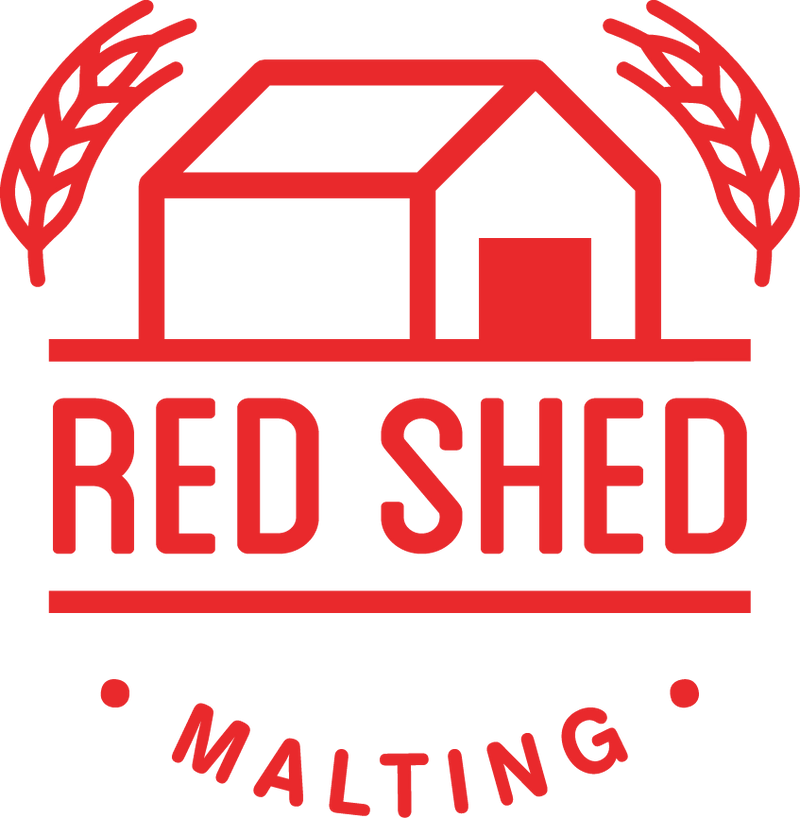FAQs
Categories
Red Shed Malting
Do we offer public tours?
Currently we are not offering public tours. Keep an eye on our social media for opportunities for tours of Red Shed through some of our partners (Alberta Small Brewers Association, Olds College, Alberta Barley, Homebrew Clubs etc.). If you are a brewery or distillery interested in seeing our operation please reach out to our sales team.
Can I buy malt directly from you at the shed?
Yes! You can purchase malt directly from us anywhere from 500g to full bags. We do ask that you schedule a pickup time and send in your order ahead of time so we can have it ready for you before you arrive.
Do you sell to home brewers?
Yes we sell to home brewers! For Calgary or Edmonton, visit our great partners Grapes to Glass (Calgary) or Southside Winning Wines Plus (Edmonton.)
Can you custom malt / toll malt our barley for us?
Some breweries and distilleries already have a close relationship with a farmer in their area. Red Shed Malting plays the connector to get their grains into your product. We can assist with lining up testing of the grains to ensure they meet our demands as a maltster and will make malt that meets your demands as a brewer or distiller. *limited availability for contract malting and subject to time availability in our malting production schedule. Minimum batch sizes required.
Does Red Shed Malting sell out of province?
Absolutely, all of our malts can be shipped directly from our malthouse to you, reach out to our sales team to help arrange shipping. We also have our Biscuit, Amber, and Chocolate malts available through Country Malt Group.
About Malt
What is malt?
Malt is a grain that has been sprouted making it more suitable for brewing or distilling. Malt provides the sugars that are fermented into alcohol during brewing or distilling. Malt is one of the four ingredients in beer (water, malt, yeast and hops), and a key ingredient in many spirits (Whisky, Bourbon, etc).
What is the difference between base malt and specialty malt?
Base malts provide the fermentable sugars for the brewing or distillation process. Base malts usually make up the bulk of the malt bill in beer and single malt whiskies. Specialty malts have undergone different or additional processes to achieve different colours, flavours and aromas. By changing time and temperature during processing, specialty malts can be made to taste like breakfast cereal, home baking, nuts, chocolate, caramel, toffee, coffee and many other flavours.
What is the difference between malt barley and barley malt?
Depends who you’re asking! Farmers, maltsters, and brewers might all mean something different when they say malt. A farmer produces malt barley, this is done by planting a variety that is likely to meet specifications for malting (CMBTC puts out a list of recommended malting varieties of barley each year), and nurturing and harvesting it under conditions where the barley meets malting specifications like a minimum level of germination, a specific protein range and being free of disease or discolouration. Barley malt (or malted barley) is barley that has been put through the malting process. Steeping, germinating and kilning to get the ideal starch and enzyme profile.
Where is barley grown?
Russia, Australia, Canada and the UK are the largest barley producing countries. In Canada, barley is mostly grown on the prairies with Alberta growing the most of any province.
Why is Alberta the best place in the world to grow malt barley?
Alberta has many soil types and climatic conditions. Malt barley grows best in areas that have black chromeozoic soil, and that are far enough North to benefit from long, warm summer days that ease off into cool evenings but that are far enough South to have enough frost-free days in the growing season. Some areas in Central Alberta receive enough rainfall for dryland malt barley growing while some areas in the south supplement water through irrigation.
Are there differences between barley varieties?
Absolutely! Different barley varieties can have a wide range of characteristics. Some characteristics make some varieties more suitable for livestock feed (high yielding, smooth awned), others for malting for brewing or distilling purposes (high extract, low beta-glucan). Some of the malting varieties will be better suited for adjunct brewing or distilling (higher enzyme) while others are more suited for all-grain brewing and distilling (low protein, high extract, low beta-glucan). Maybe least appreciated, is that different varieties can have different flavours and aromas. We love to see brewers and distillers who taste their ingredients and experiment to find out what barley variety will work best for their product.
Can any barley be malted?
No, some barley just won’t germinate. When put through the malting process, if it doesn’t germinate it will generate lots of off flavours and won’t provide the starch profile or enzyme package needed by brewers or distillers. In addition to making sure the barley germinates, Red Shed Malting selects for barley that is free of disease, not stained, is a malting variety and has nice plump and uniform kernels.
Besides barley, what other grains can be malted?
Wheat is the most common other grain to be malted followed by rye and oats. Several maltsters are malting gluten free grains like millet and sorghum to make celiac friendly beverages.
